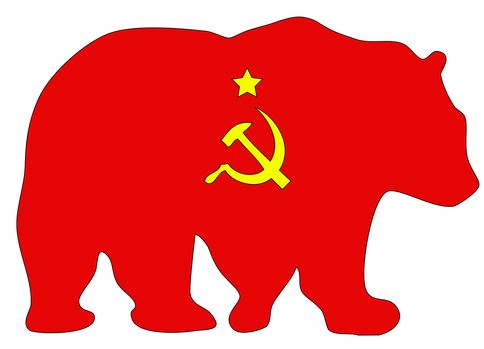The Bear in the Room
Like the proverbial elephant in the room, the Russian bear is making its presence felt throughout Europe, the Middle East, northern Africa, and the United States. Most notably, Russia’s intervention in Syria has strengthened its status as a world power. Relations have been nurtured with a host of Middle East governments as well as non-state actors Hamas and Hezbollah.
Whereas the Obama administration was seen as weak in its policy toward the war in Syria, and U.S. ties with a number of regional governments have deteriorated, Russia has acted decisively under a strategy of achieving stability even if that means supporting existing leaders with terrible human rights records. Russia abides by a long-standing policy of territorial sovereignty, not interfering in other countries’ affairs.
Russia sees its own stability under threat from international terrorism. Some 9,000 fighters from Russia and former Soviet republics are believed to have joined so-called Islamic State (IS). Russia’s large Muslim population has been a source of terrorist activity, and a 22-year-old citizen of Kyrgyzstan, another former Soviet republic, has been blamed for the April 3rd suicide bombing of a metro train in St Petersburg.
Russian President Vladimir Putin has stated that “the collapse of the Soviet Union was a major geopolitical disaster of the century.” Putin has pledged to protect the millions of ethnic Russians living in former Soviet states, thus providing himself with justification for Russia acting to “protect” its co-patriots. Belarus, Ukraine, Latvia and Estonia, with between eight and 25 percent ethnic Russian populations, are prime current or potential targets for intervention and control.
After fighting a disastrous war through the 1980s in Afghanistan, Russia is taking advantage of the lack of progress in the U.S. led effort to stabilize the Afghan government. Russia has engaged with the Taliban in Afghanistan with the intent to reconcile the fundamentalist organization with the government. Russia has improved ties with Pakistan and China as well.
Russia’s international strategy includes weakening and destabilizing NATO and the European Union, supporting extremist parties in Europe and focusing on upcoming elections. Putin encourages anti-immigration positions, even as Russian bombing in Syria is surely increasing the migration flow. The hacking of United Kingdom, French and German Internet political communications for purposes of spreading disinformation has been occurring for years and continues.
Russian hacking was also a factor in the 2016 U.S. presidential election. Destabilizing and tainting U.S. institutions is consistent with Putin’s goal of raising Russia’s international status and restoring the might of the Russian state. A profile of Putin comes from a Brookings Institution book, Mr. Putin: Operative in the Kremlin, by Fiona Hill and Clifford Gaddy. Fiona Hill is a Brookings expert on Russia and Putin. She has taken a leave from Brookings to serve on the National Security Council staff as deputy assistant to the president and senior director for European and Russian Affairs. In their book, the authors conclude, “Putin has spent a great deal of time in his professional life bending the truth, manipulating facts, and playing with fictions. He is also, we conclude, not always able to distinguish one from the other.”

